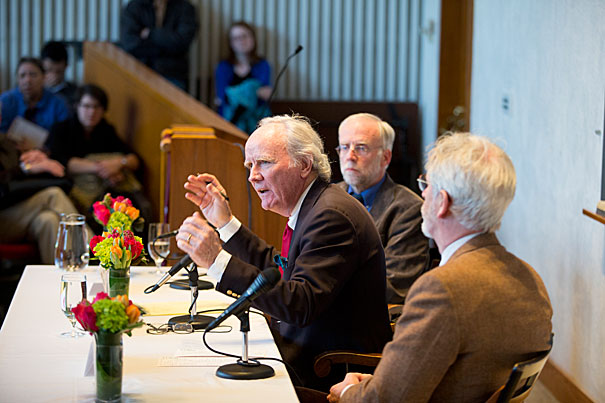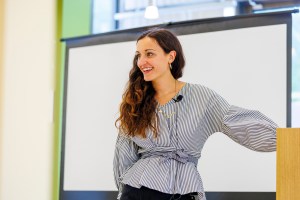Nation & World
-

A tale of three cities — and their turn to right in heartland
Government professor’s new book focuses on roles of race, class, and religion in evolution of former New Deal Democrats
-

Why do election polls seem to have such a mixed track record?
Democratic industry veteran looks at past races, details adjustments made amid shifting political dynamics in nation
-

You’d never fall for an online scam, right?
Wrong, says cybersecurity expert. Con artists use time-tested tricks that can work on anyone regardless of age, IQ — what’s changed is scale.
-
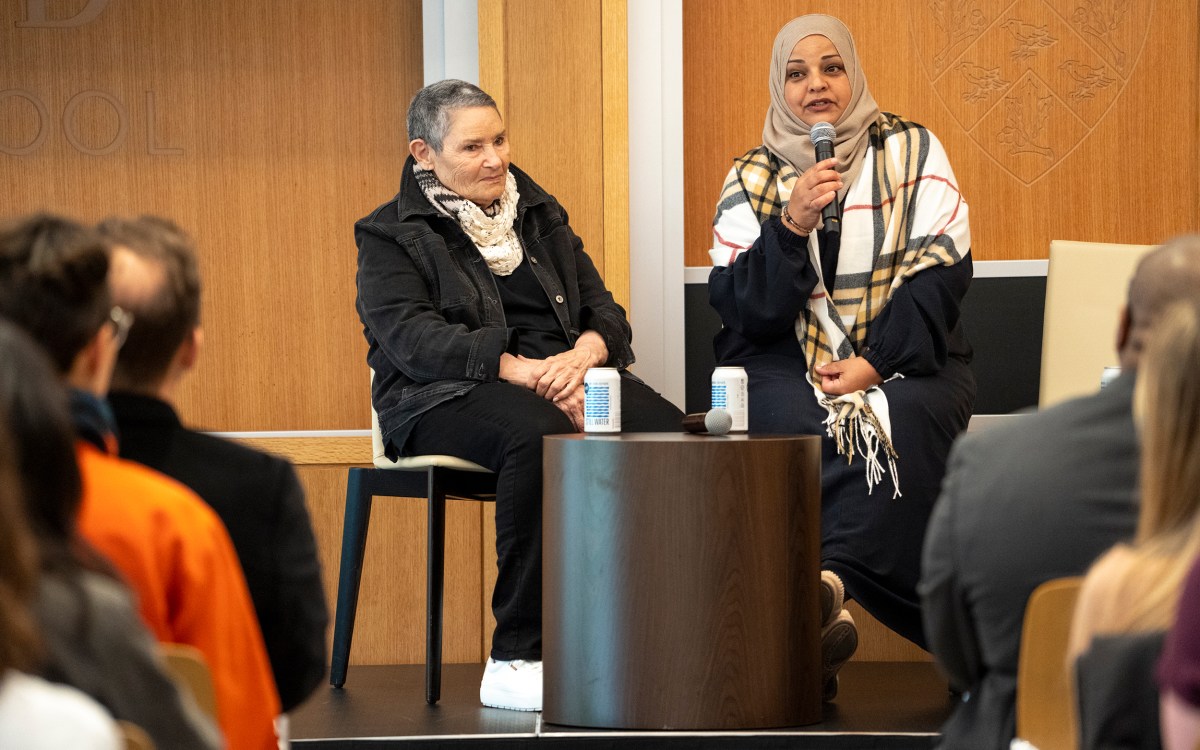
Two bereaved mothers who know price of war work for peace
Layla Alsheikh, Robi Damelin argue path to Mideast reconciliation begins with acknowledging common humanity
-

Taking the phones out of school
In podcast episode, experts discuss growing movement to restrict devices in class
-
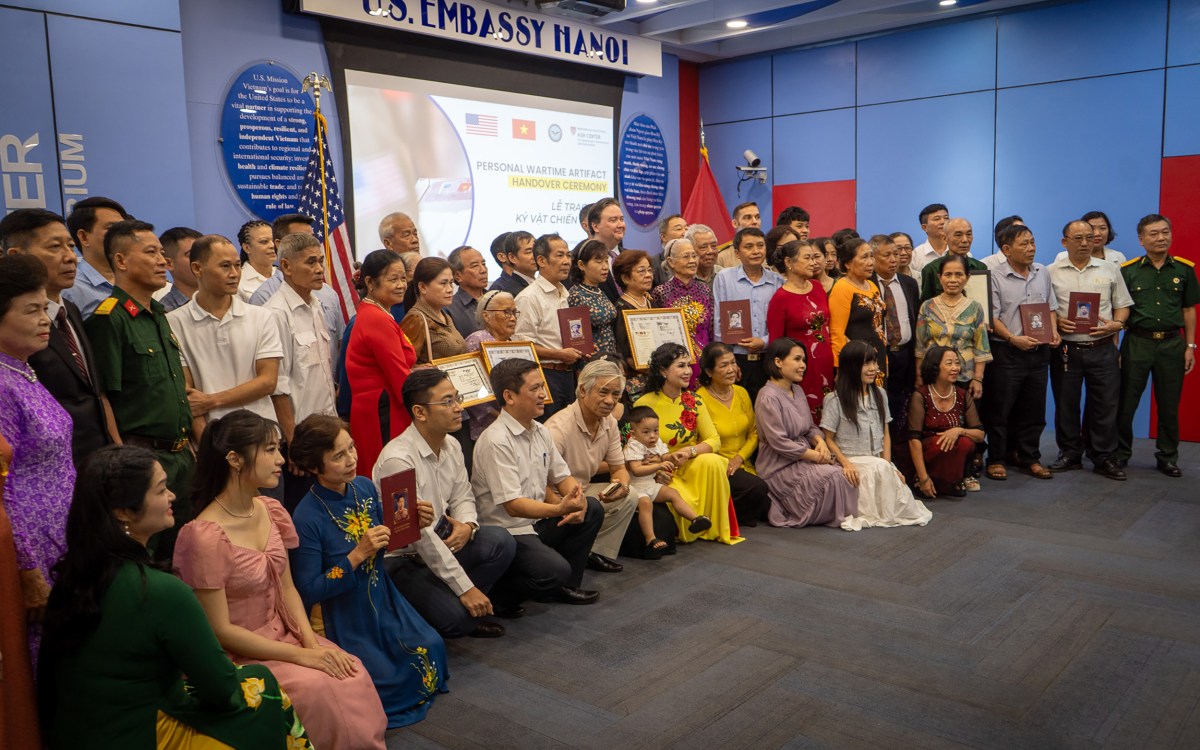
‘The first new information we’ve heard in 50 years’
Unseen Legacies researchers are answering decades-old questions about the fates of Vietnamese soldiers
-
Speaking up for science
Former National Ocean and Atmospheric Administration administrator Jane Lubchenco described her four years in Washington, D.C., as difficult and frustrating, but said it’s imperative that other scientists follow suit to give science a voice in national policies.
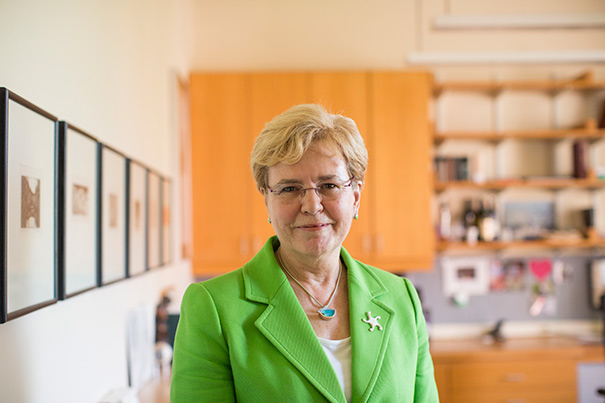
-
Toward a more competitive U.S.
At an event at Harvard Business School (HBS) that was three parts analysis and one part rally, participants tried to chart a new path forward for the sluggish U.S. economy — a move that may require a new definition of “competitiveness.”
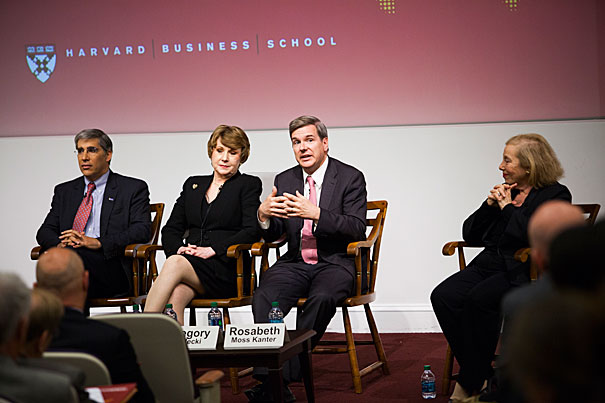
-
Refusing a ‘diminished self’
Former Ethiopian judge and political prisoner Birtukan Midekssa, at Harvard as a Scholar at Risk, argues that her native land — with its heritage of religious tolerance and its innate appetite for liberty — is ripe for democracy.
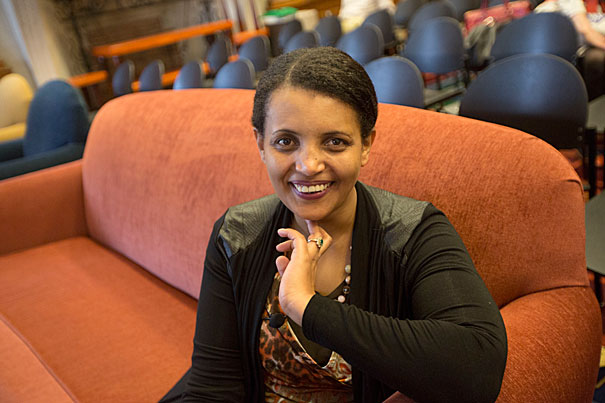
-
Education without limits
Salman Khan, the founder of Khan Academy, explained his vision for online learning during a GSE Askwith Forum.
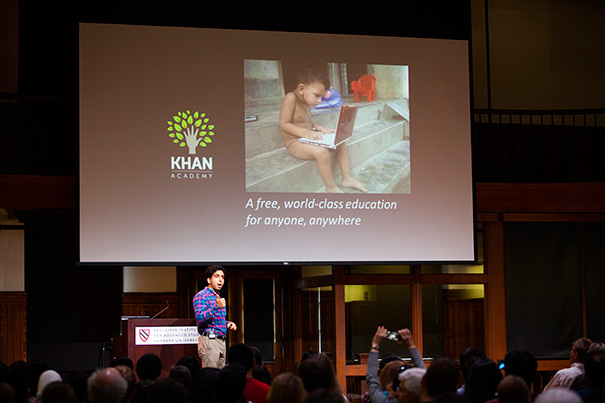
-
Focus on teaching, learning
The essentials of good teaching and learning took the stage at the second annual Harvard Initiative for Learning and Teaching conference.
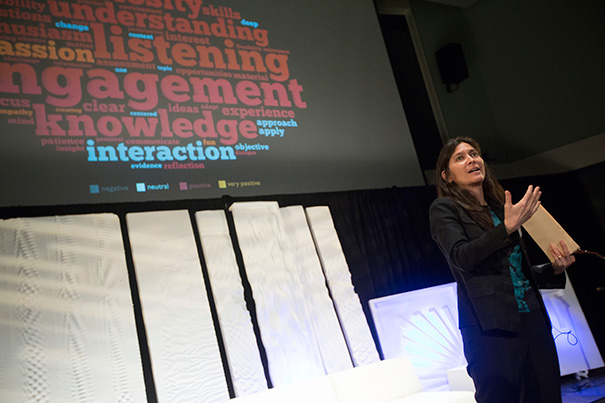
-
Sense where none seems possible
Five panelists at Harvard Divinity School — including Dean David N. Hempton — grappled with the ways religion is sometimes used to justify acts of terror, covering as well the role of faith traditions in encouraging healing.
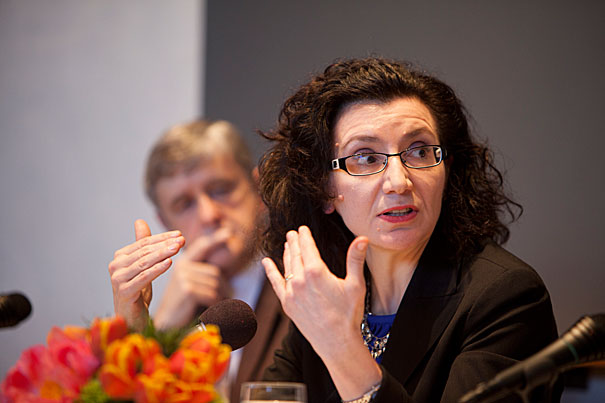
-
Steps against poverty
Delivering the Asia Center’s annual Tsai Lecture, the World Bank Group’s president, Jim Yong Kim, described the bank’s bold push to end world poverty.
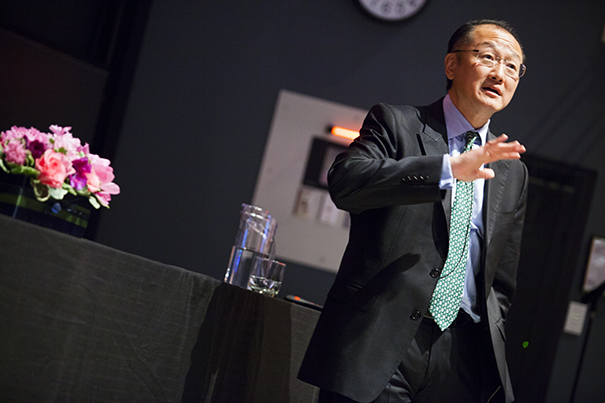
-
Holistically Crimson
Shaw Chen, treasurer of the Harvard Club of Shanghai, learned a lot from the College’s East Asian studies classes, but got plenty of experience outside the classroom as well.
-
Subversive education
Noam Chomsky on Wednesday joined Bruno della Chiesa, a visiting lecturer at the Harvard Graduate School of Education, in an Askwith Forum covering the legacy of the radical Brazilian educator Paulo Freire (1921-1997) and his 1968 book, “Pedagogy of the Oppressed.?????
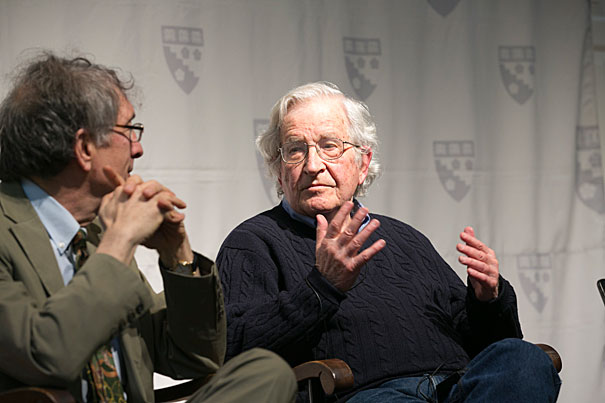
-
Reflections on a nuclear mission
Mallinckrodt Professor of Physics and Nobel laureate Roy Glauber reflected on his two years in Los Alamos, N.M., during World War II as part of the Manhattan Project, which developed the world’s first atomic bomb.
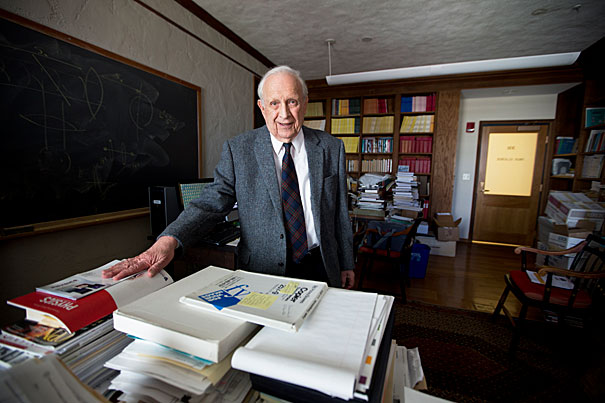
-
Talent on the sidelines
Every spring, high-achieving high school seniors around the country play the college admissions game in the lead-up to the May 1 decision deadline. Research by Christopher Avery of HKS research shows that many poor but promising students are sitting out.
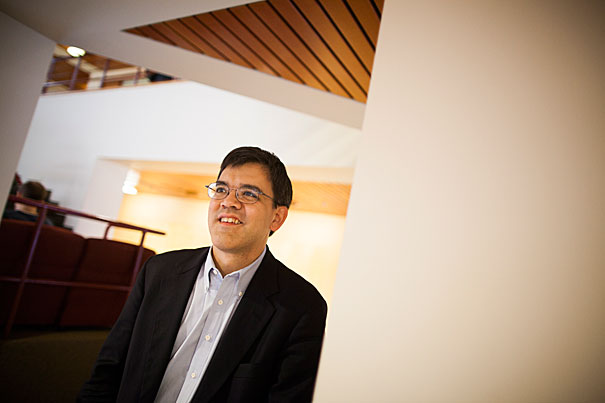
-
The price of women’s immigration
Author Sonia Nazario told a Radcliffe conference that people don’t generally know that large numbers of women who immigrate to the United States illegally to get jobs and support their families back home leave their own children behind to do so.
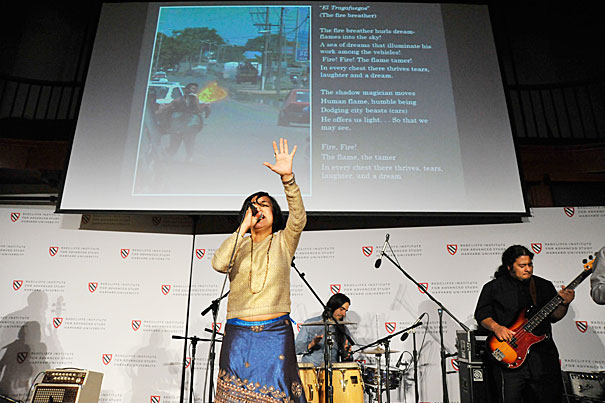
-
Reshaping Manhattan’s Midtown
Harvard Graduate School of Design alumni working in New York City outline a plan to revamp a 70-block area around Grand Central Station, where zoning restrictions have long restricted the height of buildings, to allow for structures twice as tall.
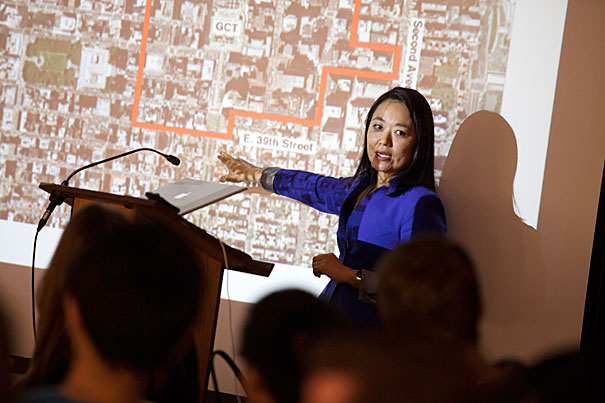
-
Reflections on week of terror
A panel at the John F. Kennedy Jr. Forum examined the interplay of law enforcement coordination, leadership, and social and traditional media during the Boston Marathon bombing investigation.
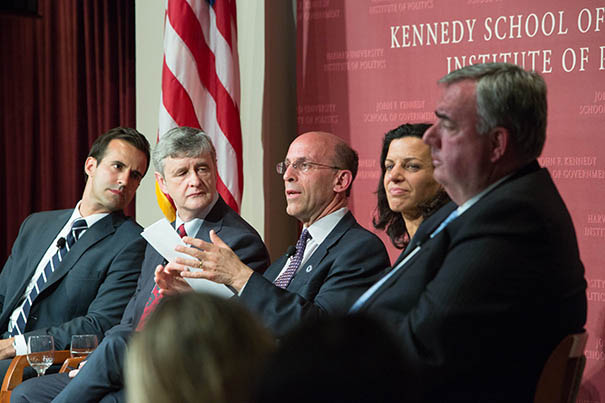
-
With nature in mind
Kongjian Yu, who received a doctor of design degree from Harvard’s Graduate School of Design in 1995, espouses an environmental design ethic that considers natural processes on a site first. Since 2010, he has guided GSD students through the problems related to China’s rapid urbanization.
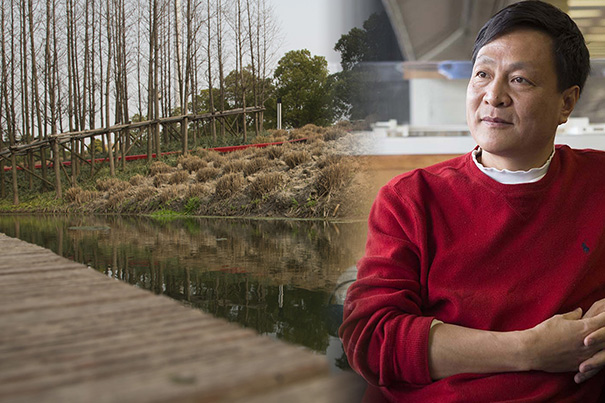
-
Your own news platform
The information revolution seemed to hit another high gear last week in Boston, leaving authorities on information technology pondering the ramifications.
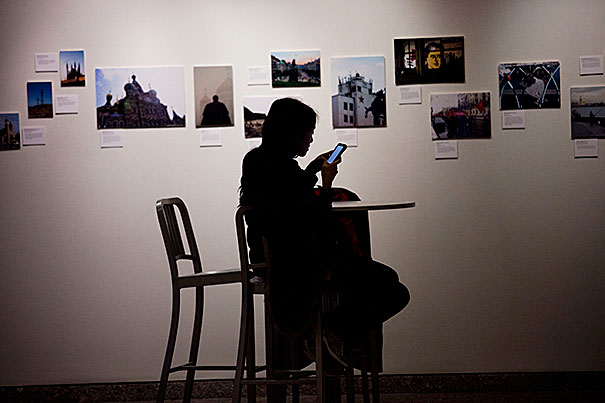
-
Where the research takes you
Steven Pinker, Johnstone Family Professor in the Department of Psychology, and Howard Gardner, John H. and Elisabeth A. Hobbs Professor of Cognition and Education at the Harvard Graduate School of Education, met to interview each other about their research, influences, and interests.
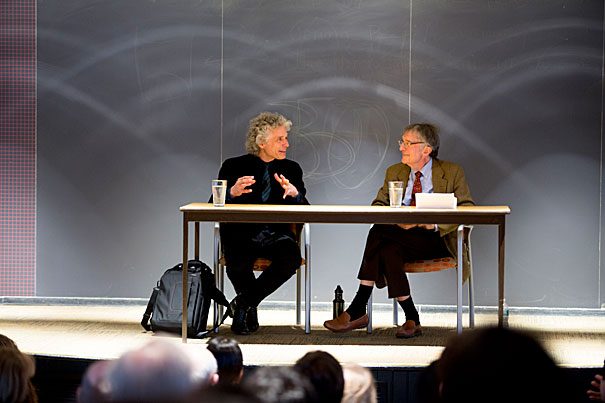
-
How the attack affects our lives
Harvard analysts in a range of fields discuss the many ways that the Boston Marathon bombings are likely to affect daily life in this area and beyond.
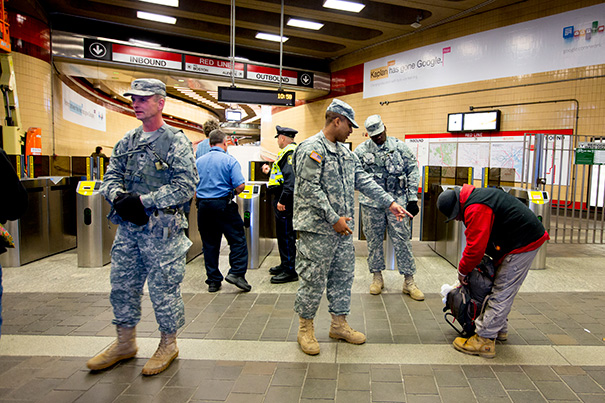
-
Teaching like a Marine
During a discussion at the Harvard Graduate School of Education, two former members of the Marine Corps discussed how their rigorous training and military careers prepared them for their current roles in education, and how those lessons can translate more broadly to the education sector.
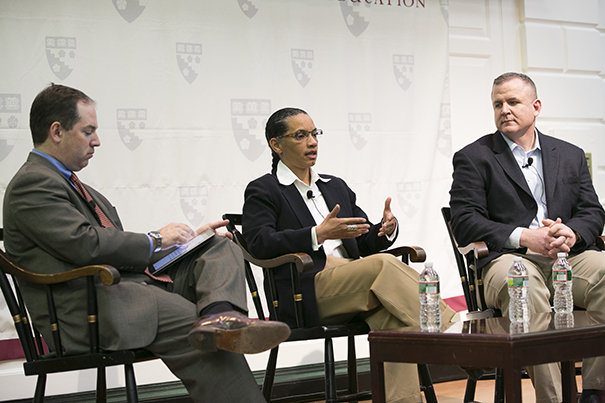
-
The seeds of anthropology
Zongze Hu, who received his doctorate in anthropology from Harvard in 2009, has wasted little time fostering the discipline in his native China, establishing new graduate and undergraduate programs at Shandong University.
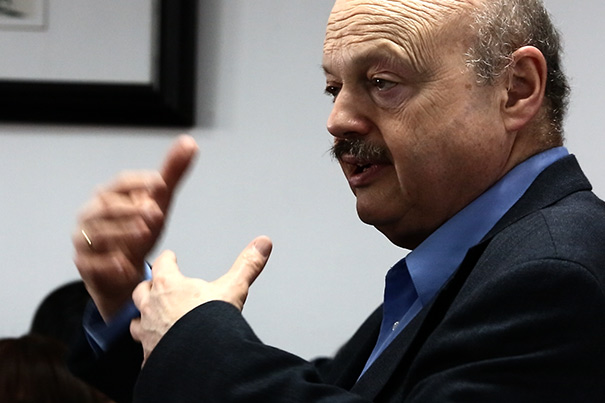
-
Making this economy work
In honor of its 30th anniversary, the Mossavar-Rahmani Center for Business and Government brought together heavy hitters in economics and government to discuss how private and public leaders can help the United States thrive again.
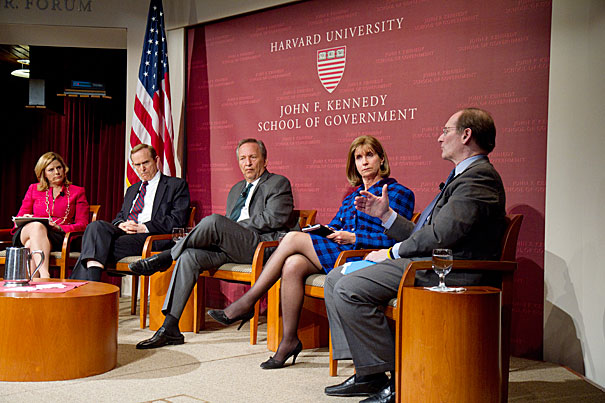
-
A question of balance
At Harvard Law School on Friday, a panel of four leading legal scholars examined a single question: Is there a lack of intellectual diversity at law schools?
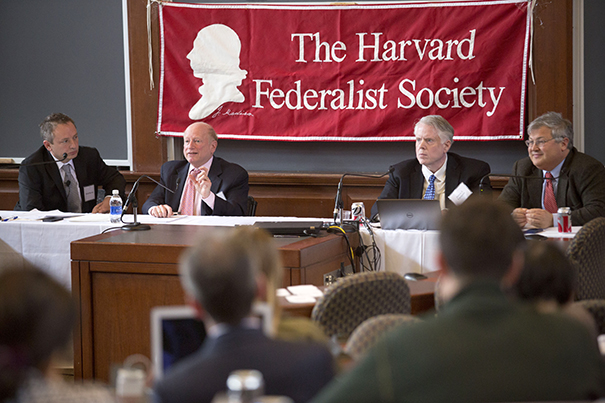
-
A thirst for justice delayed
Researchers with the Harvard Humanitarian Initiative are surveying Cambodian attitudes toward a tribunal prosecuting leaders of the Khmer Rouge regime, which engineered the killings of an estimated quarter of the nation’s population, the worst mass murders since World War II.
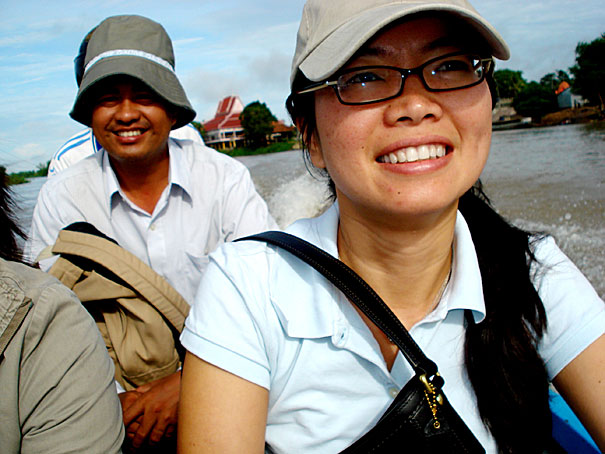
-
The world as sacred
The first conference on African diasporic religions offered spiritual lessons from the continent that helped to create humankind, including a reminder that the body itself is a sacred space.
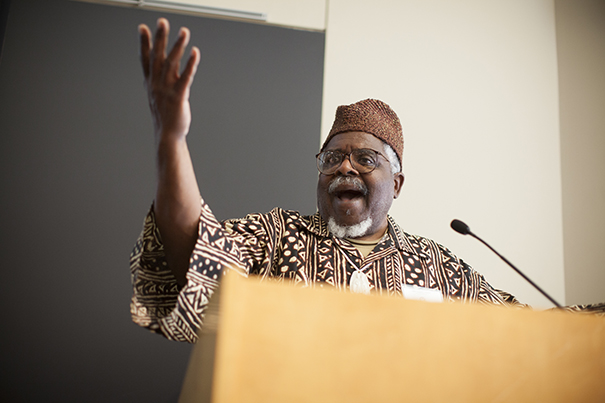
-
‘Sisterhood of the traveling pantsuit’
This week, Harvard Business School celebrated 50 years of women in its M.B.A. program with a summit that drew hundreds of the School’s female graduates to campus. But as a new alumni survey demonstrates — and as speakers like “Lean In” author Sheryl Sandberg acknowledged — women still have a long way to go to in the working world.
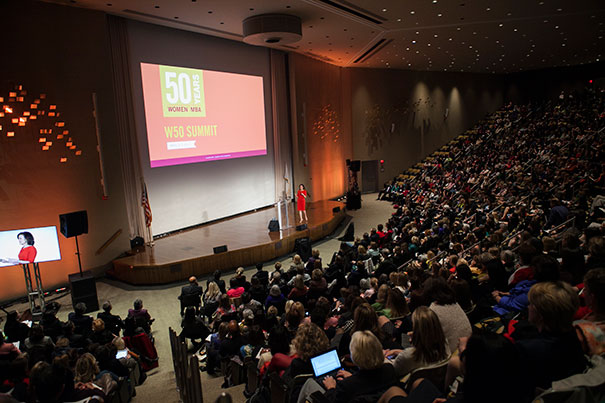
-
On spirituality at Harvard
Harvard President Drew Faust and Divinity School Dean David N. Hempton discuss the role of religious studies and spiritual life in the 21st century — at Harvard and beyond.
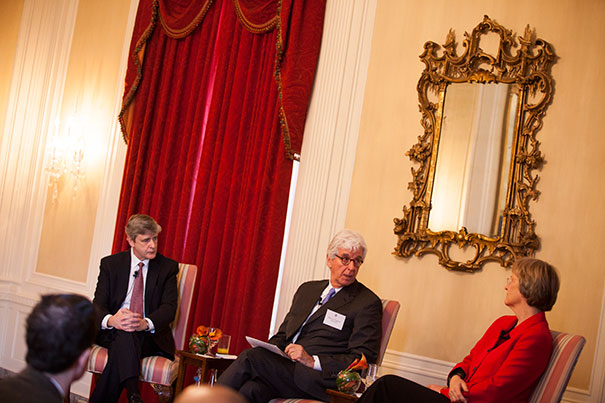
-
A path out of violence
Facing the drawdown of U.S. forces and the run-up to next year’s presidential election, Afghanistan has reached a critical moment in its troubled history.
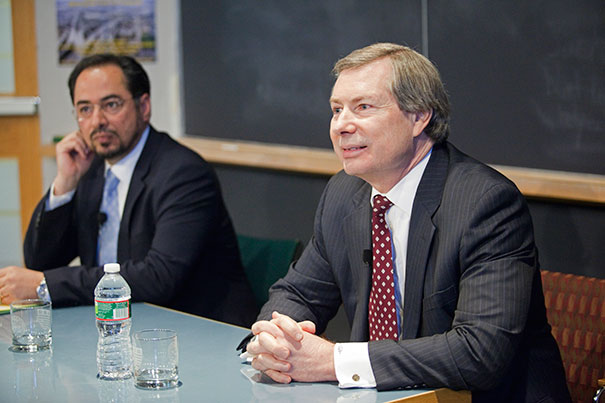
-
Lessons of a temporary city
The Maha Kumbh Mela, India’s massive gathering of Hindu pilgrims, ended in March. But for Harvard researchers across disciplines, the festival and the tent city it spawned continue to yield lessons in everything from big data to urban planning.

-
Invading Inner Mongolia’s painful past
Harvard graduate student Sakura Christmas is drawn to a tumultuous time in the history of northern China, when invasion, migration, and culture change altered the lives of traditional people forever.
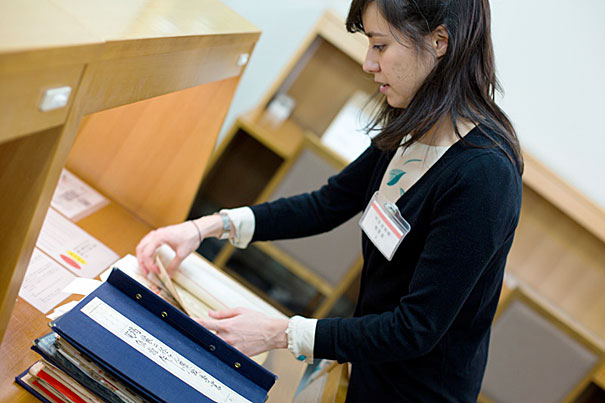
-
Something in a name
Author James Carroll and Harvard Divinity School professor Francis Clooney explored the significance of the Cardinal Jorge Bergoglio’s selection as pope, the potential challenges he faces as the leader of the world’s 1.2 billion Catholics, and the direction for the church in the years and decades to come.
